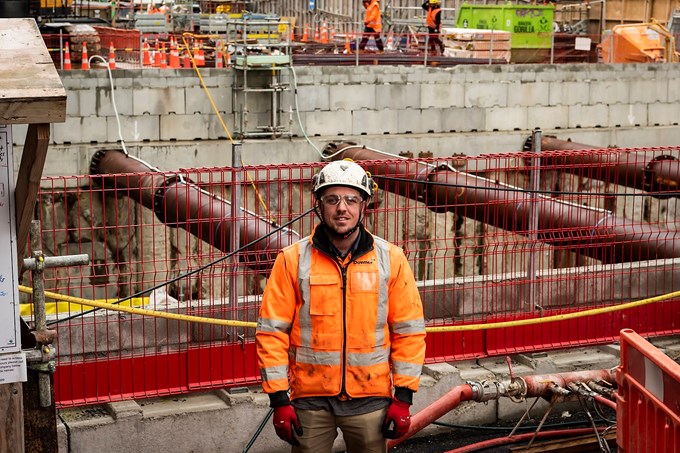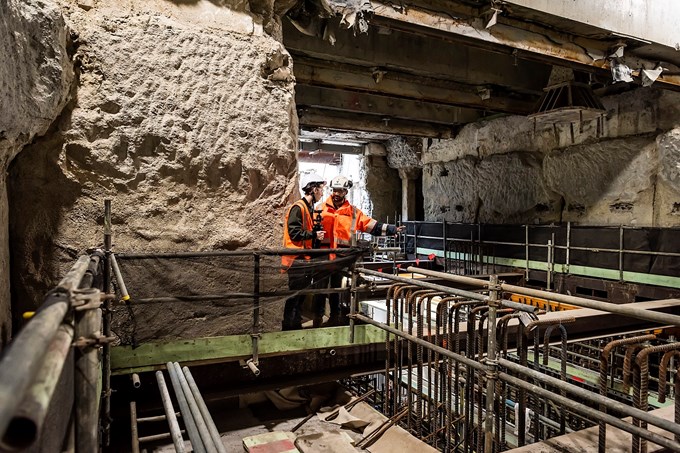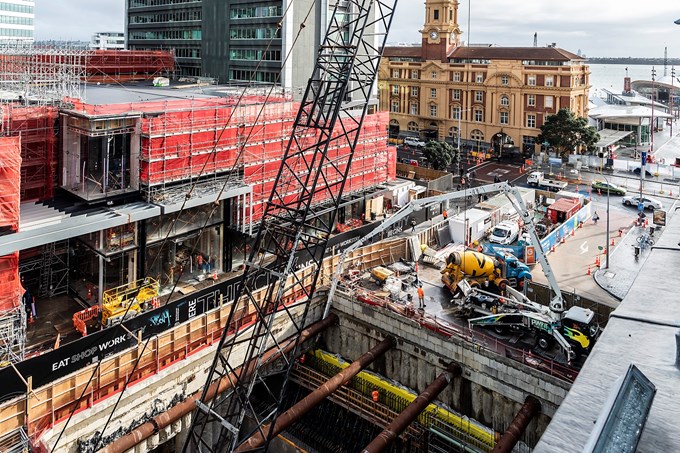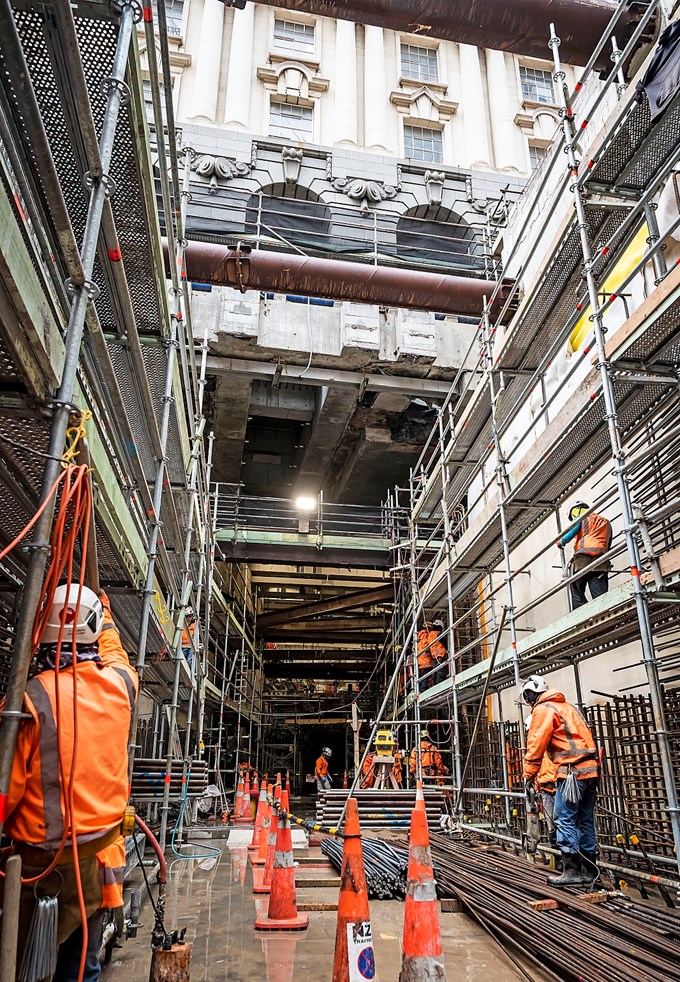The City Rail Link will bring a new meaning to the term ‘downtown’ when the underground rail tunnels are completed in 2024.
Sam Button and Rebekah Robinson put on their steel-capped boots and ventured below ground to meet some of the people constructing them.
Vehicles moving, music playing, people rushing. Lower Queen Street sounds like any other big city in the morning, but get close enough to the Britomart precinct and you’ll hear something else: an army of builders slowly conquering one of the country’s biggest and most complex infrastructure projects, the City Rail Link.
The first works on the CRL, the $4.4 billion, 3.4km twin tunnel from Britomart to Mount Eden station, began in 2016 and site foreman Patrick Gorman, who also worked on the Waterview Tunnel, has been there from the beginning.
“It’s amazing to see how far we’ve come in three years,” he says. “Seeing the massive difference is incredible. It’s changing every day.”
Gorman, who works for contractors Downer, leads the team who have been building the tunnel walls underneath the old Chief Post Office and lower Queen Street, and it’s a tough environment to work in.

“My guys do a lot of heavy lifting, all day, every day. We come in and do what we have to do, and I’ve got to make sure everyone goes home safe.”
Working with him is engineer Abhi Amin, who scored the job not long after graduating from university.
“What we’re trying to do here is unique. It’s a completely different challenge. The technical aspect of it, how precise we have to be in terms of our steelwork, concrete laying, surveying points – it all has to be perfect.”

Down in the worksite itself, narrow walkways and scaffolding snake through an unrecognisable Britomart precinct. The 14m-deep lower Queen Street trench was fully excavated by March this year, and the team recently met another major milestone, pouring the last concrete base slab under the Chief Post Office, which itself had to be lifted up – all 4000 tonnes of it – and placed on new foundations. With the slabs complete, work can begin on building the tunnel walls that connect through to the Albert Street site.
One of the on-site supervisors, Mike Capi, says his men are working hard to meet targets. That’s a challenge, but he says everything is going well so far.
“There’s a huge amount of concrete reinforcing that goes into the tunnel, but it’s not just the construction – we’ve got to manage the gear and equipment, making sure it all gets here on time and to the right place.”
Improved travel throughout Auckland
When the construction is complete, the CRL will greatly improve travel in central Auckland, and the effects will cascade to other suburbs, too. Mount Eden station, which will connect directly to Britomart through two new stations – Aotea and Karangahape Road – will be rebuilt and substantially enlarged.
You will be able to get from Britomart to Mount Eden in 10 minutes, and travel times from Henderson will be slashed by 17 minutes. At peak times, trains will arrive at least every 10 minutes, if not more frequently, making timetables redundant. The painstaking work of building the biggest improvement to Auckland’s rail network in decades is noisy and costly.

Earlier this year, the cost of the project increased by $1 billion to $4.4 billion, partly because of rising construction costs and partly because the decision was made to accommodate longer trains to keep up with demand as the city’s population grows.
Despite this, the benefits are clear to those building it.
“A single train from the south could travel to the west and people in the city will start using the trains more often because they’ll now have direct access to the main hub at Britomart,” says Amin.
Gorman agrees. “Hopefully that will mean less traffic on the roads.”
There is still much work to be done – the CRL is due to be completed in 2024 – but it’s clear they are pleased with progress.
“It’s very technical,” Amin says. “I’m proud of what we’ve achieved, and only 50m from the sea.”


